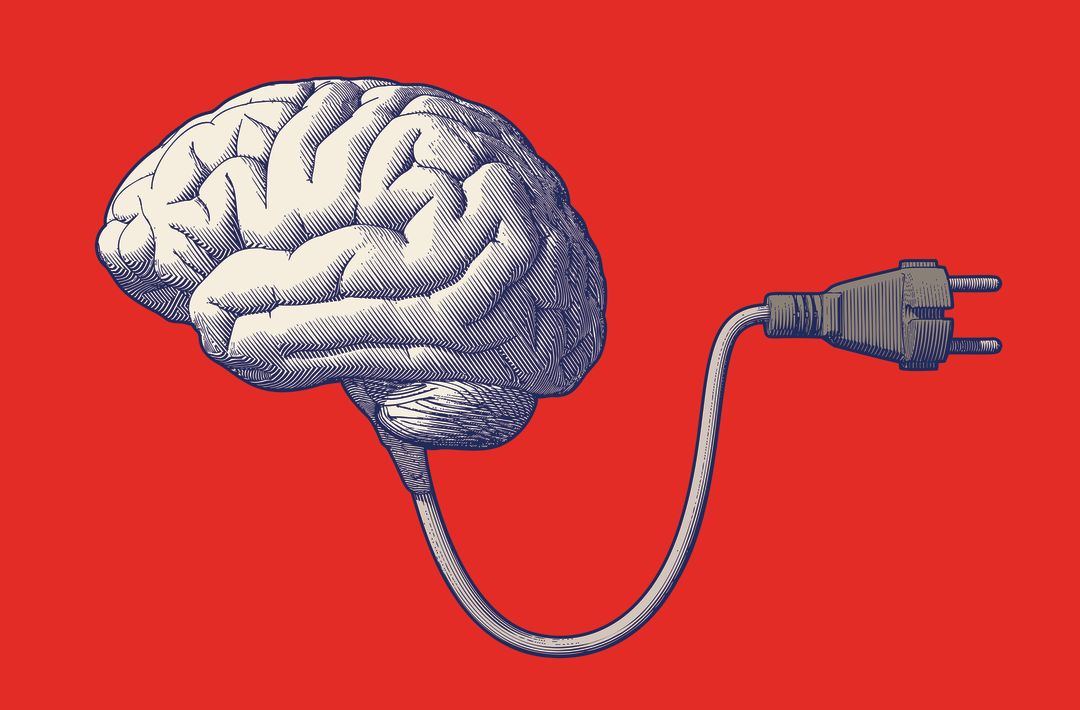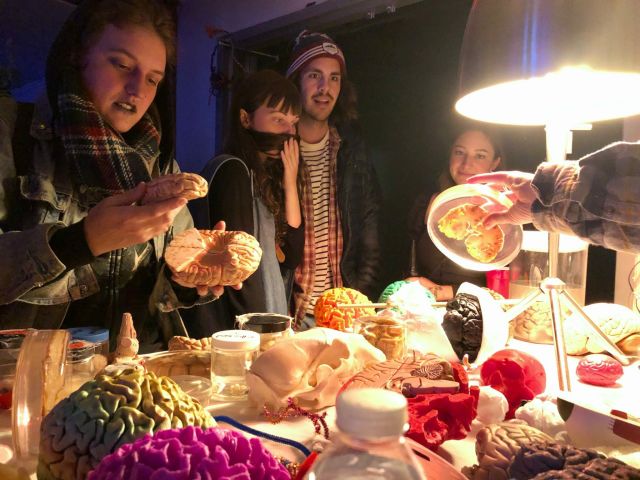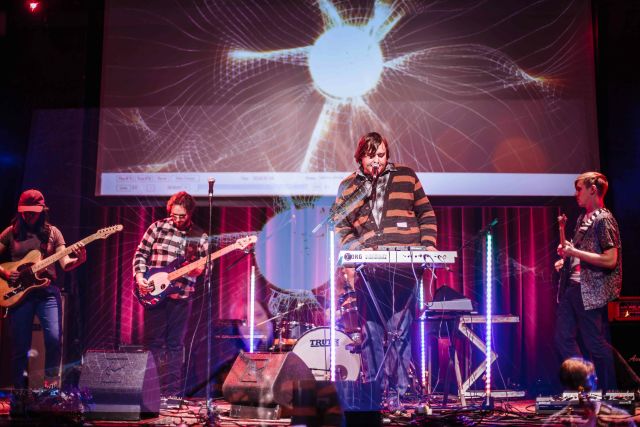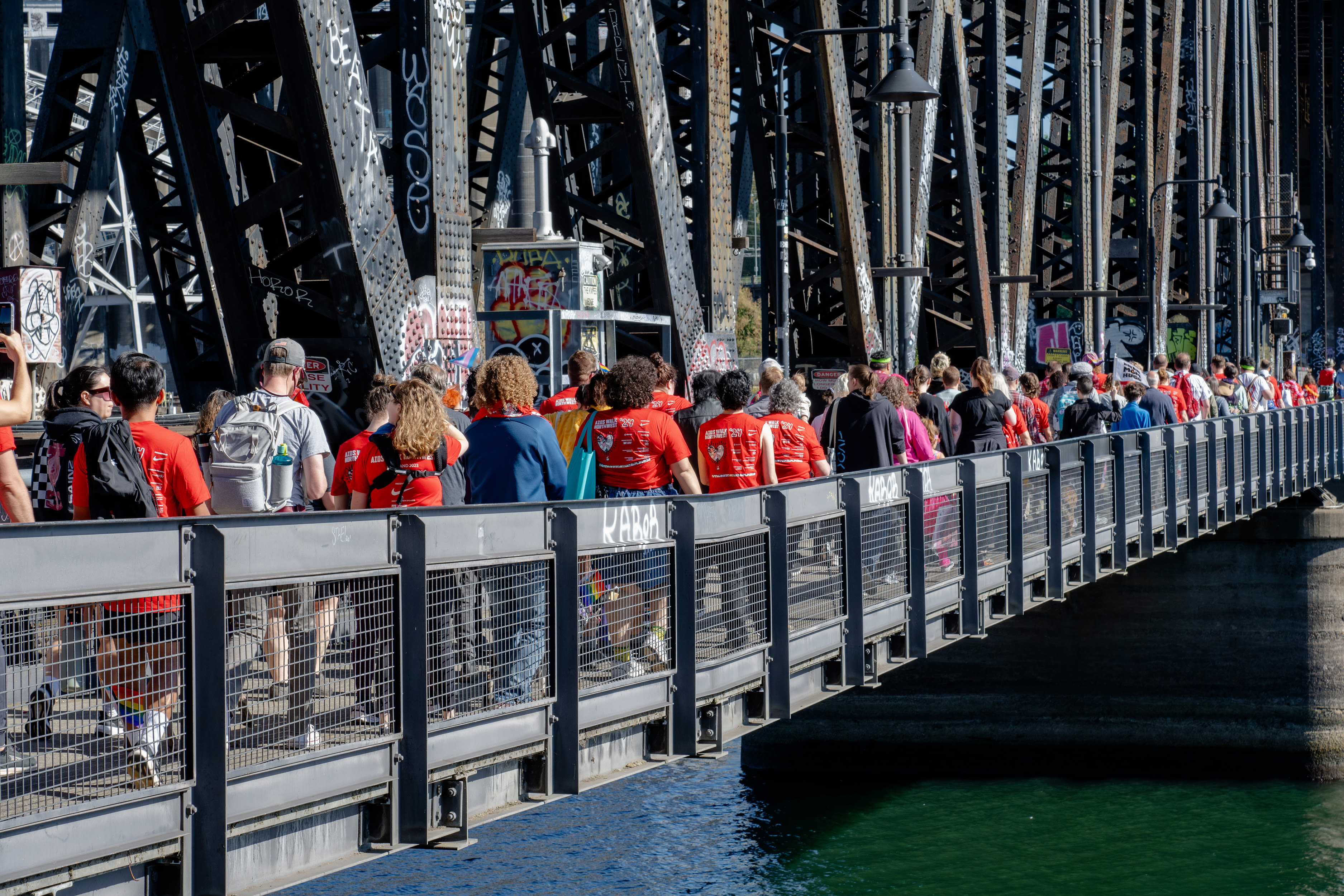NogginFest Looks Different this Year, but the 'Spirit of the Event' Hasn’t Changed

The annual NogginFest (March 20), a celebration of art, music, and neurology, has gone virtual this year.
Even as COVID vaccinations go up and caseloads go down, festivals and other large-crowd events have been playing it safe, and are either changing their formats drastically or not happening at all (see: the Portland Rose Festival). So it’s not a particular surprise anymore to see our favorite events switch to a virtual platform, what with the floating plush ball virus still kicking around. But, when there’s an event that’s as hands-on and interactive as the annual NogginFest, which is going all virtual this year, one wonders exactly what that entails.

Observing actual brains at a past NogginFest
Image: Courtesy NW Noggin
At past NogginFests—an annual celebration of art, music, and neuroscience hosted by NW Noggin—you might find craft tables where kids can build pipe cleaner neurons and brain cells, or stations where observers can touch, hold, and ask questions about actual brains. The festival has even reimagined performance spaces as giant brains using balloons. This year’s event, which takes place on March 20, may not be able to retain the hands-on approach it's had in the past, but coordinators for the upcoming NogginFest are hopeful the virtual space will prove to have its upsides.
“It's going to look a little different this year, but we're hoping to integrate the same spirit of the event, nonetheless,” says Carli Cox, a neuroscience student at Portland State University and NogginFest coordinator.
To compensate for the lack of physical integration during activities, the crew at NogginFest has added raffle prizes, an art auction, and even “glial gift” bags with NogginFest tees, totes, and other brain items. The event will also feature talks from local neuroscientists and researchers including Dr. Chris Stauffer, Dr. Heather Zwickey, Gail Stonebarger, and UC Davis professor Dr. Theanne Griffith, who will conduct a try-at-home experiment.
Bill Griesar, a professor at PSU and cofounder of NW Noggin, says the annual festival has always been about “meeting people where they are,” so the shift to a virtual platform has the added benefit of not forcing folks to upend their schedules for the event. Instead, he likens it to the shift he’s seen while teaching classes at PSU during the pandemic, what he calls an “asynchronous independent delivery of content.” While coordinators skipped out on the festival last year, this year seemed much more likely.
“We started talking, like, ‘why don't we do something virtual and we'll see how that works,’ and part of that was that we couldn’t get a big venue, but we could broaden the participation to some extent,” Griesar says. “People from anywhere in the world can come online and join us, and we had a lot of students who were super enthused about this idea, so they've just taken it away.”

Music and art have been central to the annual NogginFest.
Image: Courtesy NW Noggin
Since the festival’s founding in 2017, Jeff Leake, artist and cofounder of NW Noggin, says art integration has been a core part of the annual event. Leake is spearheading the festival’s live art auction, the proceeds of which will support all the artists presenting at this year’s NogginFest and help send local undergraduate volunteers to present at the Society for Neuroscience conference and in local public schools. This year will also see performances by Fish Martinez (28 Tha Native), indie rock band Stellaruse, and classical guitarist Ryan Walsh. The focus on the intersection of art and neuroscience is twofold, Leake says. First, it makes neuroscience, a seemingly heady STEM-oriented field more accessible. Second, both art and neuroscience talk about the “big questions.”
“When we originally got together and started thinking about this stuff, I think it became pretty quickly apparent that both neuroscience and art were really ideally situated to let us kind of explore what makes us who we are,” Leake says. “People have a perception of art as just being a totally creative and science as just being strict and not creative at all. Really those two things aren't true at all. You need a lot of structure to me to be able to make artwork, and you need creativity if you're going to really explore these big scientific questions…. So those two things perfectly go kind of hand in hand.”
NogginFest 2021
Saturday, March 20, 6—8:30 p.m, Free, Registration required




